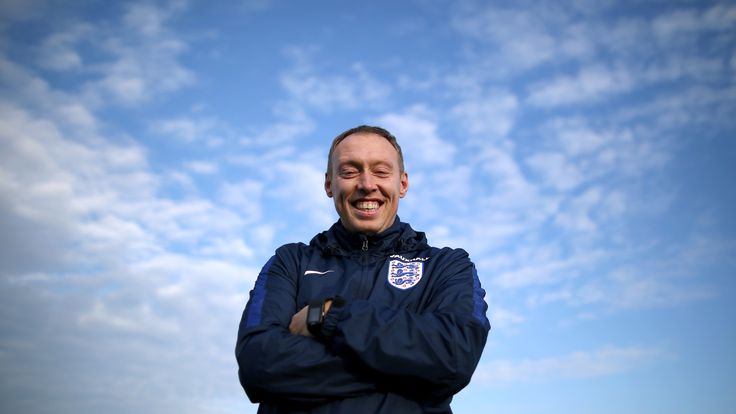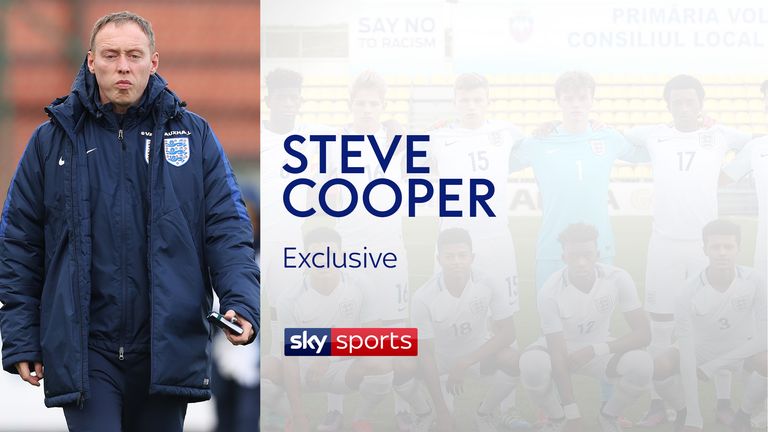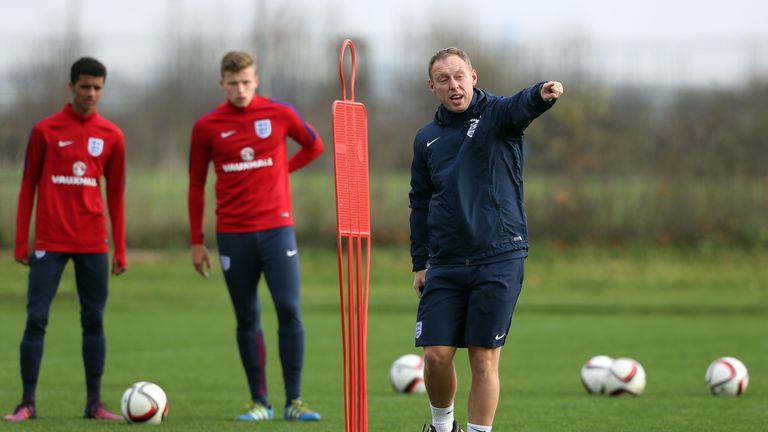Steve Cooper interview: England boss on the Under-17 World Cup

Wednesday 4 October 2017 08:05, UK
Ahead of the FIFA Under-17 World Cup in India that kicks off at the weekend, Adam Bate caught up with England boss Steve Cooper to find out how England are shaping up and why this is an important step in the development of the country’s best young players.
For England boss Steve Cooper, this month's Under-17 World Cup in India marks the end of the journey with this particular group of players. But for the youngsters in question, many of whose progress he has overseen since the age of 15, the hope is that this is just the beginning of their international adventures.
After a summer of success that saw England's Under-19 side become European champions and an Under-20 outfit lift the World Cup, the team will travel in expectation. Jadon Sancho, player of the tournament at the European Under-17 Championships in May, is in the squad. So is Phil Foden of Manchester City and Angel Gomes of Manchester United. Hopes are high.
But as is the way for youth coaches, Cooper's responsibility will be to marry up short-term ambitions with long-term goals. At this level, experiences are as important as trophies and this will be one to remember. "It is a World Cup in Asia," Cooper tells Sky Sports. "It could be a one-off experience for all of us. That is what international football is all about.
"I would be lying if I said we weren't going into this tournament to be successful. Of course we are. But at the same time we are not going to be close-minded enough to ignore the fact that there is plenty we can learn. At the end of the day, we are taking a bunch of 17-year-old lads to the other side of the world to play in a World Cup. What an unbelievable experience.
"Of course we want success but we must have one eye on the future. If we are selecting players for the long term that is with the seniors in mind. If these boys are fortunate enough to play for us at senior level, against different types of opposition in different weather with different types of refereeing, then the sooner they get used to that the better.
"This sport takes you all over the world and if you are going to be an international player at senior level then you are going to have to adapt. Obviously, in India the culture and climate is going to be different but it is about us adapting. It is a challenge but an exciting one and a relevant one as well. We will embrace it, thrive on it and learn from it whatever happens."
Cooper, a Welshman who worked in Liverpool's academy prior to joining the FA in 2013, has been working on the logistics since qualification was ensured at the Euros. There have been several trips to India to ensure everything will run smoothly - "a bit of a task if I am honest" - and he is determined to keep the pressure off his young players.
"Last summer's Euros was the boys' first ever official competition so it is important to bear that in mind," he points out. "They are still relatively new to the international scene and this is their first World Cup. You have to be open-minded about that. It is about preparing them and giving them the chance to express themselves and be the best players they can be.
"Players of this age are still developing. You get a lot of growth spurts. You also get players just moving out of school and into full-time football. They are breaking into first teams and that can really accelerate their performances on and off the pitch. So you do see a lot of differences, especially when there can be two months between seeing them.
"That is one of the fascinating parts of this job, seeing how they progress. That is what youth development is all about. It is about working out where they are at on their individual journey and plotting the right path for them to perform at their best in the here and now as well as stretching them for that next step."
For these players, there are more steps to take within the England setup. Perhaps even an Under-20 World Cup before they move on to the senior side. But Cooper is conscious that his job is to turn these players into senior internationals of the future by preparing them on and off the pitch for all that this entails. He is in regular contact with his senior counterpart.
"Having one base that we all report to means spending a lot of time with the other coaches and sharing ideas formally or informally," he explains. "That natural communication allows you to create the same identity and work towards the same objective. That includes the senior team too with Gareth Southgate, Steve Holland, Dan Ashworth and Matt Crocker.
"We are the development team so first and foremost it is about development. Of course, we want to do as well as we can in India and we are working towards that but everything we do will be with two minds - being successful in India but thinking how it will look at the end for Gareth Southgate and the senior team.
"So the Under-17 World Cup is not the end. However, it is an important milestone. The further you can go in international tournaments, the more beneficial it is because you get that experience of knockout football. Exposing the players to all of the steps of international football will serve them well in terms of getting them ready for senior level."
Cooper adds: "It is not as if we get off the plane from India and go our separate ways. There will be conversations to ensure it is a seamless transition. It is not my team, it is an England team. I am just responsible for a small part in the journey." The next stop on that journey is India and the opening Group F match against Chile in Kolkata this Sunday.







